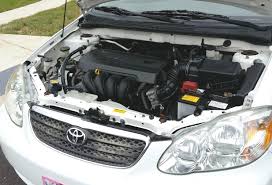 Oil is the lifeblood of your vehicle, constantly circulating through a well-maintained engine to pull away excess heat and provide lubrication for the engine’s moving parts. For things to continue in this fashion, it’s critical to change the oil on a regular schedule that is appropriate to the type of service the vehicle performs.
Oil is the lifeblood of your vehicle, constantly circulating through a well-maintained engine to pull away excess heat and provide lubrication for the engine’s moving parts. For things to continue in this fashion, it’s critical to change the oil on a regular schedule that is appropriate to the type of service the vehicle performs.
The harder you work your vehicle, the more often the oil should be changed. Operating in particularly dirty, dusty, or wet conditions; in regular stop and go traffic; or while pulling a trailer is hard work and necessitate more frequent oil changes. Failure to change the oil on schedule will cause the following performance issues.
Deterioration
Oil must be in good condition in order to effectively pull excess heat from the engine and lubricate moving parts. Oil contains detergents that cling to and sweep away particulate matter that would otherwise degrade the engine’s performance. Over time, temperature shifts inside the engine and absorption of foreign matter causes these additives to break down. This makes the oil less effective and leads to wear and tear on sensitive surfaces, such as rings and pistons.
Your vehicle’s oil filter will remove these contaminants, but over time, it can become saturated, and thus less effective. If an old filter becomes too clogged to function, unfiltered oil may bypass it via a small valve, sending the dirty oil directly into the engine.
Inefficiency
One of the most important functions of clean oil in your car’s engine is to provide lubrication to moving internal parts, such as the camshaft and pistons. Over time, as oil breaks down and changes chemically, its lubricating capacity is diminished. As your oil circulates, it picks up microscopic debris, such as iron, chromium, and aluminum from the various surfaces of the motor.
In fresh oil, these particulates don’t exceed a few parts per million. Oil that has been used beyond its recommended life can contain more than 10 times the recommended debris limit. These contaminants act like sandpaper on the microscopic level, denuding the inner surfaces of the engine and diminished performance or permanent damage.
Overheating
Heat is the enemy of any mechanical system, and the oil in your vehicle is on the front lines of this battle. When it’s within its service life, oil circulates through the engine, drawing away damaging heat before making its way through an oil cooler and filter. Over time, debris in dirty oil can affect the efficiency with which the oil can move this heat away from vital components.
When the oil becomes less efficient at cooling the engine, the heat has nowhere to go, and the operating temperature of the system increases. This causes thermal expansion inside the engine. Since the components are made of different materials, they don’t all expand at the same rate, so there can be an increasingly poor fit between the various moving pieces. This leads to dramatically increased wear when compared to an engine that has had its oil changed regularly.
Regularly changing your engine’s oil is one of the simplest and least expensive pieces of vehicle maintenance. Avoid this step, or put it off for too long, and your engine’s performance will degrade and ultimately fail—an expensive and possibly dangerous scenario. Forget to change your oil, and you will end up looking at an expensive repair bill faster than you may expect.
Image via Flickr by Robert Couse-Baker: https://www.flickr.com/photos/29233640@N07/18592103079/sizes/l



